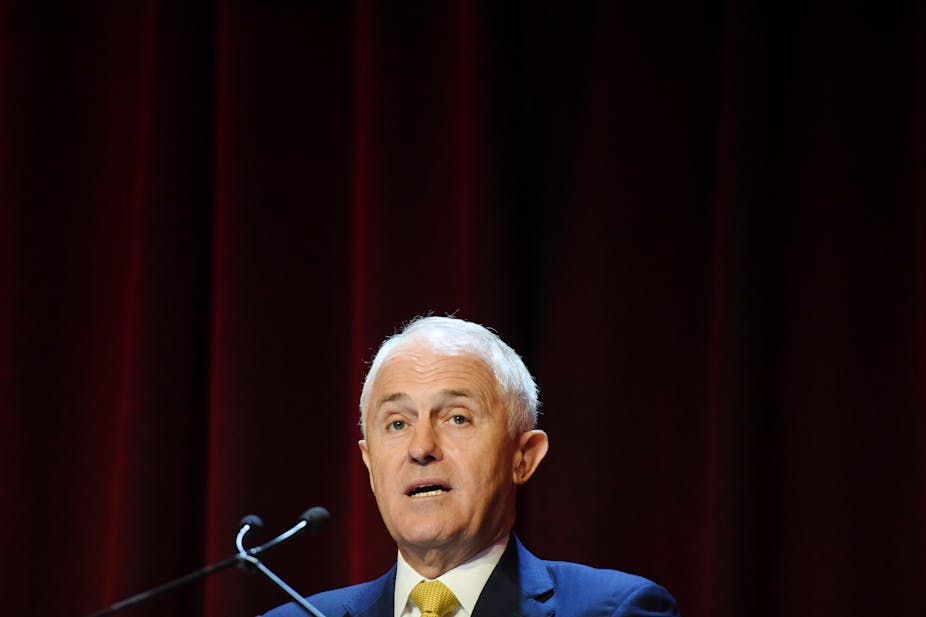A series of questions by Essential on energy policy has found the Turnbull government is so far failing to persuade people of either its performance or its arguments on energy security.
More than seven in ten (71%) said the government was not doing enough to ensure “affordable, reliable and clean energy” for households and businesses. Only 12% said it was. Fewer than one-quarter (23%) of Coalition voters thought it was doing enough. 62% of these voters said it wasn’t.
The government has recently signalled it is likely to provide incentives for new “clean coal” coal-fired power stations. But 45% opposed building new coal-fired power stations in Australia, with 31% supporting. The question did not refer to “clean coal”.
Despite the concerted government attack on the ALP’s strong commitment to renewables, nearly two-thirds (65%) approved of Labor’s “target of 50% renewable energy by 2030”. 18% disapproved. Support for the policy was 55% among Coalition voters.
Nor have people been convinced by the government’s heaping blame for recent blackouts on over-reliance on renewables.
The poll found 45% agreed with the proposition that recent blackouts “are due mainly to failures of the energy market in responding to extreme weather events”. 19% agreed they “are due mainly to the privatisation of electricity supply”. Just 16% said they “are the result of too much reliance on renewable energy”.
Asked whether renewable energy was the solution to our future energy needs or a threat to our future energy supply, 64% (up four points since October) saw it the solution (including 58% of Coalition voters), and 14% as a threat.
Some 60%, up six points since December, agreed that climate change is happening and is caused by human activity.
On Tuesday, EnergyAustralia’s managing director Catherine Tanna briefed the recently formed energy committee of federal cabinet on the potential for developing pumped hydro storage in the Upper Spencer Gulf in South Australia. The Australian Renewable Energy Agency (ARENA) is finalising a A$450,000 grant to EnergyAustralia to examine the feasibility of the project. The feasibility study will take about six months; the development itself would take about two years if it goes ahead.
In remarks to the committee, Malcolm Turnbull continued his attack on the energy situation in South Australia, with its high reliance on renewables.
“We’ve seen in South Australia what happens when you have unaffordable and unreliable energy – the most expensive and least reliable electricity in Australia.”
Turnbull said a key element needed in the electricity system was more storage as the use of renewables increased. “Batteries are developing but the big opportunity is in pumped hydro,” he said.
Tanna said while the pumped hydro project was in the feasibility phase, the sort of power availability being looked at could have alleviated the load-shedding that occurred in South Australia.
Labor’s energy spokesman Mark Butler said the government was adding to the crisis in energy policy by “distracting the Australian people with irresponsible and uneconomic plans to use taxpayer money to build coal power plants.
"Since it was first flagged, the government’s coal plan has been criticised by industry groups such as the Australian Industry Group, electricity generators and their peak body the Australian Energy Council and even the very government agency the government wants to use to fund its coal plan, the Clean Energy Finance Corporation.”
Butler said the criticisms “are based on a few simple facts: new coal plants are more expensive than alternatives like gas and renewables, they are incompatible with Australia’s obligations under the Paris Climate Change Agreement, and they do not provide the flexibility that complements greater uptake of renewable energy”.
Despite the federal government’s constant criticism of South Australia’s energy policy, SA Premier Jay Weatherill on Tuesday reaffirmed the state’s commitment to a 50% state-based renewable energy target to be achieved by 2025.
“People that are talking about coal are talking about the past – we’re talking about renewable energy, which is the future,” he said
The SA government is currently developing a plan to intervene in the energy market to get more stability into its system.

